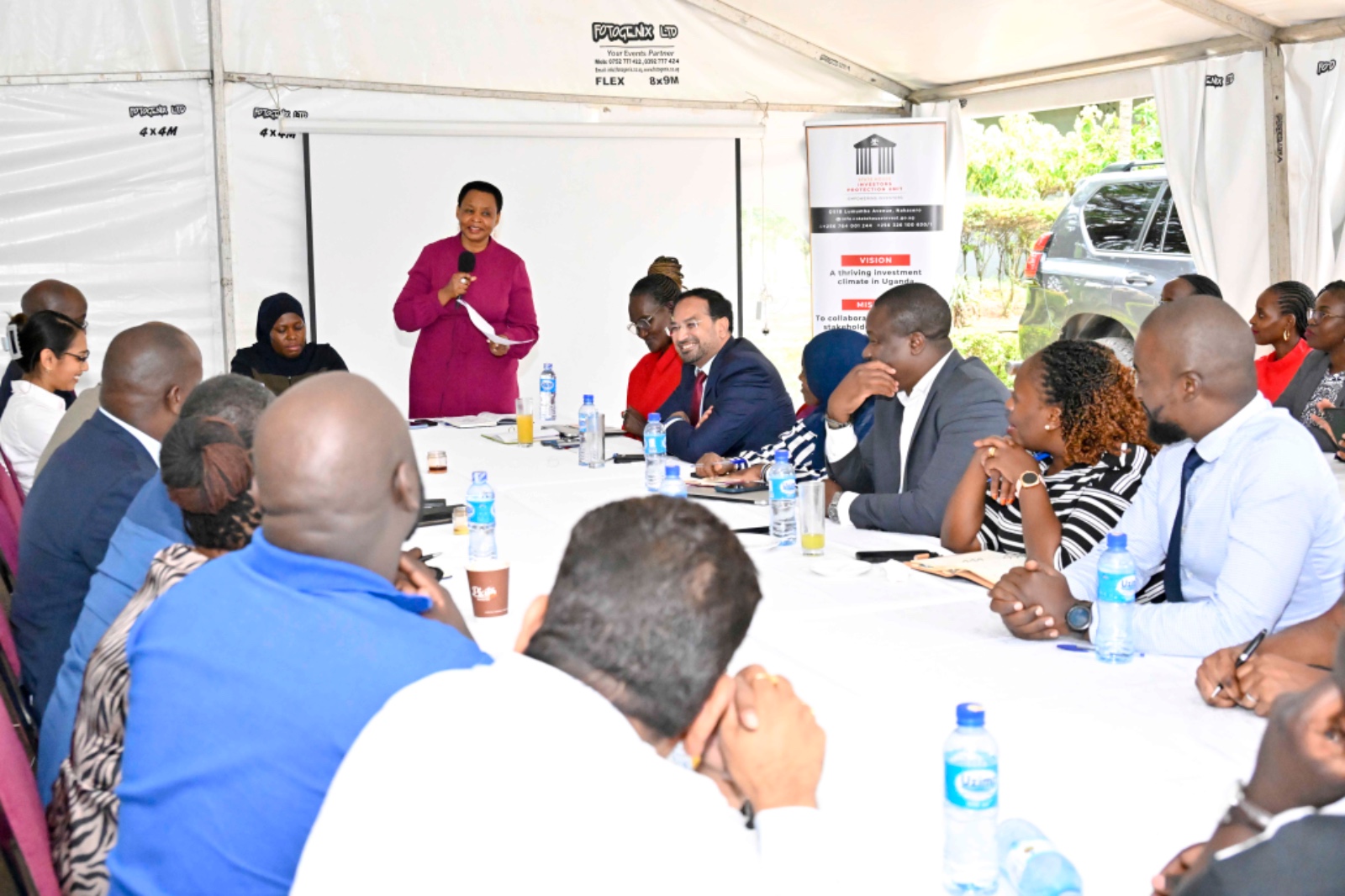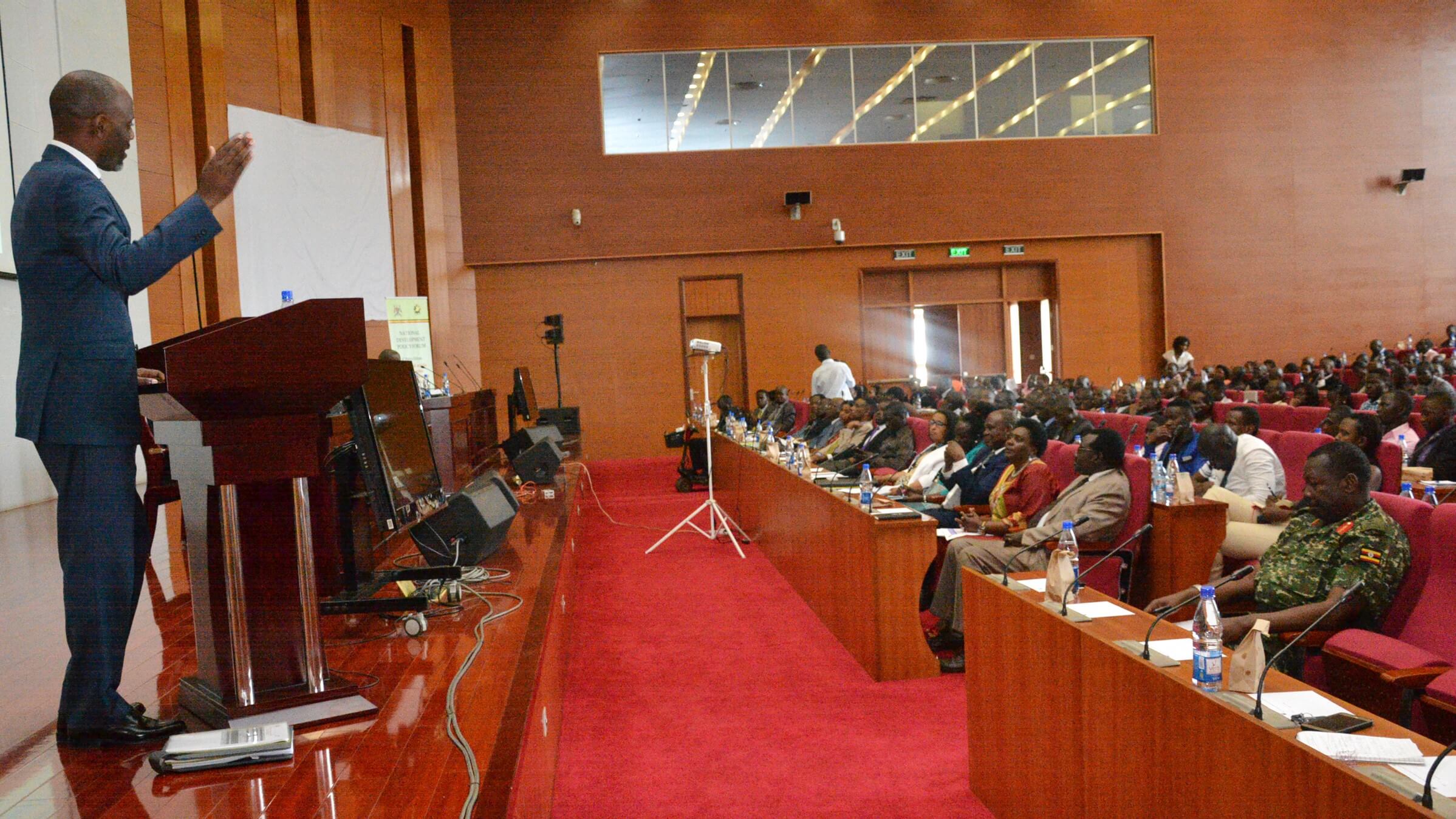The government of Uganda through the Ministry of ICT and National Guidance officially launched the National Business Process Outsourcing (BPO) Policy and Publicity Campaign at Mestil Hotel, Kampala by the Minister of ICT and National Guidance, Hon. Dr. Chris Baryomunsi, alongside the Permanent Secretary, Dr. Aminah Zawedde.
This launch marked a significant step toward positioning Uganda as a global leader in the BPO industry and is part of the broader Digital Transformation Roadmap, aimed at accelerating Uganda's economic growth through technology and establishing the country as a hub for digital services.
Uganda has the second youngest population in the world, with an average age of just 17. However, despite this youthful demographic, youth unemployment remains a significant challenge. The latest census data reveals that 70% of qualified youth struggle to find jobs, and 42.6% of the people aged 15-24 are not engaged in employment, education, or training. The BPO sector presents a crucial opportunity to address this issue by creating accessible jobs, especially for young people.
Dr. Aminah Zawedde, emphasized the importance of the BPO policy in tackling youth unemployment, stating, “Uganda's young population represents our greatest asset, yet we face the challenge of creating enough employment opportunities for them. The BPO sector offers a solution by providing accessible and sustainable jobs, particularly for young people. Through the National BPO Policy, we aim to empower our youth, reduce unemployment, and position Uganda as a leading player in the global outsourcing market.”
The National BPO Policy is designed to make Uganda an attractive outsourcing destination, encouraging economic growth and creating job opportunities, particularly for youth and women. The policy seeks to leverage Uganda's expanding ICT infrastructure and highly skilled workforce to attract international clients, and investors, and foster local entrepreneurship in the BPO sector.
Key objectives of the policy include enhancing Uganda's competitiveness through capacity building, providing incentives for private sector participation, promoting innovation, and fostering partnerships between the government, educational institutions, and industry players. The policy also ensures inclusivity by offering opportunities for marginalized groups.
Dr. Zawedde further stated, “This policy is not just about creating jobs but also about developing a workforce that is ready for the digital age. Our focus is on building the skills needed to excel in the global BPO market, ensuring that our youth have the tools they need to succeed in a rapidly evolving digital economy.”
The government has already made significant strides in improving Uganda's digital infrastructure, regulatory frameworks, and skills development programs to meet global standards. These efforts are complemented by the Digital Transformation Roadmap, which strengthens Uganda's digital ecosystem and positions the country to compete in the global outsourcing market.
In addition to the policy, a nationwide publicity campaign was also launched to raise awareness about the benefits and opportunities within the BPO sector. The campaign aims to engage stakeholders across Uganda, encouraging them to explore how BPO can transform both businesses and lives.
Prof. William Bazeyo, Chairman of the BPO Council, echoed the sentiment, stating, “Our BPO sector has long been underutilized. Today, we finally have a policy that acknowledges its potential and sets the stage for exponential growth.” He expressed confidence that the new policy would transform public service delivery and create jobs, especially for Uganda’s youthful and educated population.
“The policy we are launching today will cause a lot of change. Outsourcing is crucial for public institutions. Why should ministries continue buying printers, paper, and toner when such services can be outsourced cheaply and effectively?” Prof. Bazeyo said during the launch of the policy in Kampala.
Mr. Ambrose Ruyooka, Commissioner of Research and Development at the Ministry, explained that the BPO policy, approved by the cabinet in September 2024, provides a strategic framework to promote the industry, create employment opportunities, and stimulate the acquisition of services from local BPO companies by both public and private sectors.
The BPO sector in Uganda has already seen success. For instance, NFT Uganda, a single company, has generated $115 million in revenue over the past 15 years. “Imagine if we had 10 such companies. The impact on employment and the economy would be huge,” Commissioner Ruyooka added.
The Ministry of ICT and National Guidance is committed to supporting the growth of the BPO sector through continued improvements in digital infrastructure, training, and skills development. By combining the BPO policy with the Digital Transformation Roadmap, Uganda is set to thrive in the increasingly competitive global market for outsourcing services.
Dr. Baryomunsi concluded, “We have a unique opportunity to leverage the global demand for BPO services and create sustainable employment for our youth. Through strategic partnerships, investments in training, and the right policies, Uganda will become a leading hub for BPO services, driving economic growth and improving the lives of our people.”
The complete National BPO Policy document can be accessed on the Ministry of ICT and National Guidance website at ict.go.ug/bpo. The government encourages all stakeholders to review the policy. With the right skills, partnerships, and resources, Uganda is set to become a global leader in BPO services, creating sustainable job opportunities and driving the nation’s economic growth.
Feb 20, 2025
Uganda Launches National Business Process Outsourcing (BPO) Policy and Publicity Campaign
Business Process Outsourcing
By Fiona Luboga

The author is a Communications Officer at the Ministry of ICT & National Guidance.
Related Stories

Business Process Outsourcing
Key Stakeholders Convene to Advance Uganda’s Business Process Outsourcing (BPO) Agenda
Jan 23, 2025

Business Process Outsourcing
BPO and Innovation Council inaugurated to fight unemployment
Nov 11, 2021
